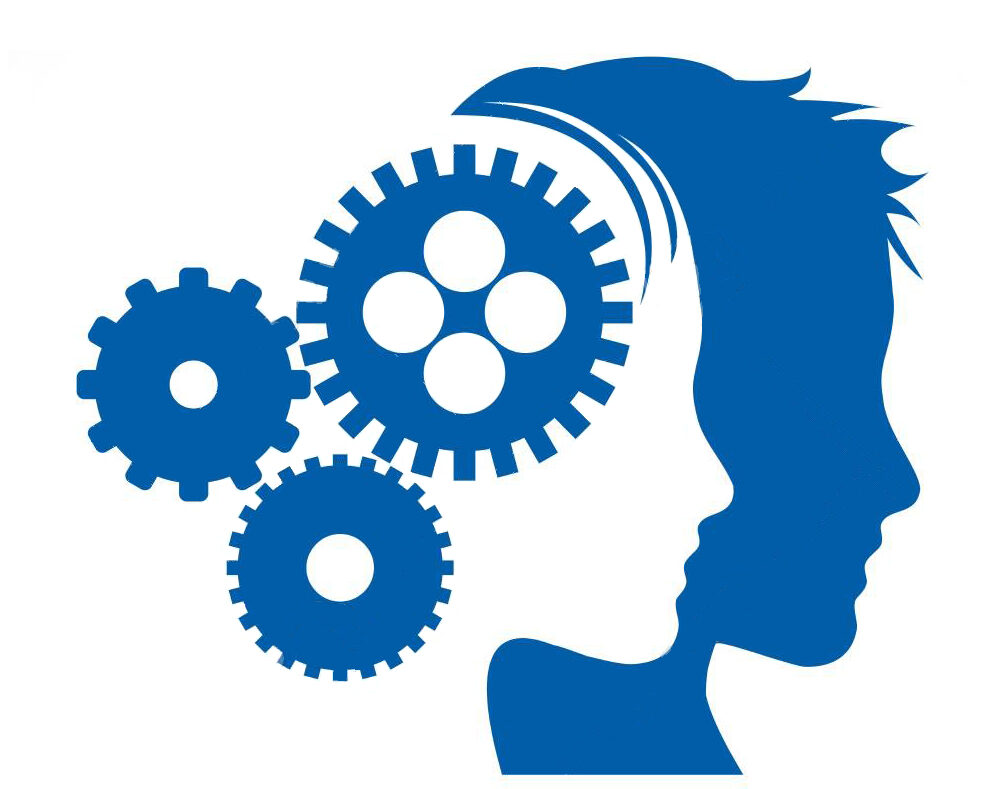Imagine a world where you can let go of the incessant need to analyze every little detail, where you can liberate yourself from the overwhelming burden of overthinking. In this article, we explore the perils of overanalyzing and how it can hinder personal growth, disrupt relationships, and rob us of living in the present moment. Join us as we uncover the detrimental effects of this common tendency and discover ways to break free from its grip.
The Perils of Overanalyzing
Overanalyzing is a common habit that many of us fall into, but it can have negative consequences on various aspects of our lives. From decision making to relationships, productivity to creativity, the perils of overanalyzing can take a toll on our mental well-being and hinder our overall success. In this article, we will explore the detrimental effects of overanalyzing and provide strategies to overcome this habit.
Negative Effects of Overanalyzing
Mental Exhaustion
One of the most significant negative effects of overanalyzing is mental exhaustion. Constantly analyzing and overthinking every decision and situation can drain your mental energy, leaving you feeling fatigued and overwhelmed.
Wasted Time and Energy
Overanalyzing often leads to wasted time and energy. Instead of focusing on taking action or making decisions, you may find yourself caught up in endless loops of analysis paralysis, where you’re stuck in a cycle of indecision.
Distracted Focus
When you are continuously overanalyzing, your ability to concentrate and focus on important tasks or goals can become compromised. Your attention becomes divided, and your mind may wander, making it difficult to stay present and engaged.
Increased Self-Doubt
Overanalyzing can also increase self-doubt. Constantly questioning your choices and actions may lead to a lack of confidence in yourself, making it harder to trust your instincts and make decisions without second-guessing.
Hindered Problem-Solving
Although analyzing situations can sometimes be beneficial when problem-solving, overanalyzing can actually hinder your ability to find solutions. Overemphasis on irrelevant details and excessive worry about potential outcomes can cloud your judgment and prevent you from seeing the bigger picture.
Analysis Paralysis
Analysis paralysis is a term used to describe the state of being stuck in overthinking, unable to make decisions or take action. This state of indecisiveness can be paralyzing and can prevent you from moving forward in both your personal and professional life.
Impact on Decision Making
Overemphasis on Minutiae
When overanalyzing, you may find yourself getting caught up in the smallest details, losing sight of the bigger picture. This overemphasis on minutiae can make decision-making a daunting and time-consuming process.
Difficulty in Finalizing Choices
Overanalyzing often leads to difficulty in finalizing choices. The fear of making the wrong decision can make you hesitant and indecisive, causing your decision-making process to drag on for extended periods.
Fear of Making Mistakes
With overanalysis comes a deep-seated fear of making mistakes. This fear stems from a perfectionistic mindset and can hinder your ability to take risks and make confident decisions.
Inability to Trust Intuition
Overanalyzing can erode your trust in your own intuition. By constantly second-guessing yourself and analyzing every possible option, you may become detached from your inner instincts and struggle to rely on your gut feelings.
Inaction and Missed Opportunities
Perhaps the most significant impact of overanalyzing on decision making is inaction and missed opportunities. By spending excessive time analyzing, you may miss out on valuable chances for growth and success.
Increased Stress and Anxiety
Heightened Sensitivity
Overanalyzing can make you more sensitive to small details and potential negative outcomes. This heightened sensitivity can contribute to increased stress and anxiety in your daily life.
Constant Self-Evaluation
The habit of overanalyzing often leads to constant self-evaluation. You may find yourself obsessively reviewing your thoughts, actions, and decisions, which can be mentally and emotionally taxing.
Overwhelmed by Possibilities
Overanalyzing can lead to feeling overwhelmed by the multitude of possibilities and potential outcomes. The constant analysis of every option can create a sense of anxiety and make decision-making even more challenging.
Fear of Uncertainty
Uncertainty is a natural part of life, but overanalyzing can magnify any fear of uncertainty that you may already have. The constant analysis can breed doubt and worry, making it difficult to embrace the unknown.
Persistent What-ifs
Overanalyzing often brings about persistent “what-if” thoughts. These thoughts focus on hypothetical scenarios and can keep your mind trapped in a loop of negative possibilities, contributing to increased stress and anxiety.
Reduced Productivity
Endless Analysis-Paralysis Loop
One of the most detrimental effects of overanalyzing is the endless cycle of analysis paralysis. Instead of taking action and moving forward, you may find yourself endlessly analyzing, leaving you in a state of inertia and decreased productivity.
Procrastination
Overanalyzing often leads to procrastination. By continuously analyzing and questioning every aspect of a task or decision, you may delay taking action, resulting in missed deadlines and increased stress.
Lack of Focus
When your mind is consumed by overanalysis, it becomes challenging to maintain focus on the task at hand. This lack of focus can lead to decreased productivity and difficulties in completing projects efficiently.
Missed Deadlines
The combination of analysis paralysis and procrastination can result in missed deadlines. Overanalyzing can cause you to spend so much time ruminating on options that you run out of time to execute decisions effectively.
Inefficient Resource Allocation
Overanalysis often leads to inefficient resource allocation. By spending excessive time on irrelevant details or potential outcomes, you may fail to allocate your resources effectively, leading to wasted time, money, and energy.
Strained Relationships
Overthinking Interactions
Overanalyzing can significantly impact your relationships. You may find yourself overthinking every interaction, analyzing every word, gesture, or action from others, which can lead to misinterpretation and unnecessary stress.
Misinterpretation of Intentions
When overanalyzing, it’s easy to misinterpret the intentions of others. This can lead to misunderstandings, strained communication, and damaged relationships.
Difficulty in Trusting Others
Overanalysis can erode trust in your relationships. By constantly questioning motives and intentions, you may find it challenging to trust others, leading to strained connections and a lack of intimacy.
Constant Need for Reassurance
Overanalyzers often crave constant reassurance from others. Insecurity and overthinking can cause you to seek validation and approval from those around you, placing strain on relationships.
Emotional Withdrawal
The perils of overanalyzing can result in emotional withdrawal. Constant analysis and overthinking can drain your emotional reserves, making it difficult to connect and engage authentically in relationships.
Indecisiveness and Paralysis
Weighing All Possibilities Equally
Overanalyzing often involves weighing all possibilities equally, making it challenging to prioritize and make decisions efficiently. This indecisiveness can cause you to feel stuck and unable to move forward.
Fear of Making the Wrong Choice
The fear of making the wrong choice is a common outcome of overanalysis. This fear can cause indecisiveness and can paralyze you, preventing you from making any decision at all.
Analysis without Action
Overanalyzing often leads to a pattern of analysis without action. You may spend excessive time pondering potential outcomes without taking concrete steps towards your goals, resulting in stagnation.
Stuck in Limbo
Indecisiveness and overanalysis can leave you feeling stuck in a state of limbo, unable to progress in your personal or professional life. This lack of forward momentum can lead to frustration and a sense of unfulfillment.
Inability to Move Forward
Overanalysis can hinder your ability to move forward. The constant analysis and indecisiveness can create a sense of being trapped, preventing you from taking the necessary steps towards personal growth and development.
Perfectionism and Fear of Failure
Setting Unrealistic Standards
Overanalyzing is often tied to perfectionism. The habit of overthinking can lead to setting unrealistic standards for yourself, causing unnecessary pressure and fear of failure.
Avoiding Risks and Challenges
The fear of failure that accompanies overanalyzing often leads to avoidance of risks and challenges. Overthinkers may shy away from stepping outside their comfort zone, potentially missing out on valuable opportunities for growth and success.
Self-Critical Thinking
Overanalyzing can contribute to self-critical thinking patterns. Constantly scrutinizing your thoughts, actions, and decisions can lead to a negative self-image and decreased self-esteem.
Imposter Syndrome
Imposter syndrome is a persistent feeling of inadequacy, despite evidence of success. Overanalyzing can intensify imposter syndrome, as you constantly question your abilities and accomplishments.
Limited Personal Growth
Overanalyzing can stunt your personal growth. The fear of failure and perfectionism can limit your willingness to take risks, try new things, and learn from your mistakes, hindering your personal development.
Loss of Spontaneity and Creativity
Overanalyzing Kills Spontaneity
Overanalysis is the enemy of spontaneity. Constantly analyzing every decision and situation leaves little room for impulsive or creative actions, stifling your ability to embrace the unexpected.
Diminished Creative Flow
Overthinking can also diminish your creative flow. When you are hyper-focused on the details and potential outcomes, it can be challenging to tap into your creativity and produce innovative ideas.
Excessive Self-Censorship
Overanalyzing often results in excessive self-censorship. Constantly questioning and second-guessing your thoughts and ideas can prevent you from expressing yourself freely, limiting your creative potential.
Overemphasis on Precision
With overanalysis comes an overemphasis on precision. While attention to detail may be valuable in some situations, an excessive focus on getting everything “just right” can hinder your artistic and creative endeavors.
Lack of Originality
The habit of overanalyzing can also lead to a lack of originality. By constantly analyzing and questioning, you may find yourself mirroring the thoughts and ideas of others rather than developing your unique perspective.
Strategies to Overcome Overanalyzing
Recognize and Acknowledge the Habit
The first step to overcoming overanalyzing is to recognize and acknowledge the habit. Pay attention to when you are spiraling into overthinking and remind yourself that it is harming rather than helping you.
Challenge Thoughts and Beliefs
Challenge the thoughts and beliefs that fuel your overanalysis. Question the accuracy and usefulness of your overthinking, and look for evidence to counteract any irrational or negative beliefs.
Practice Mindfulness and Grounding Techniques
Practicing mindfulness and grounding techniques can help you stay present and reduce the urge to overanalyze. Engaging in activities such as meditation, deep breathing, or journaling can bring your focus back to the present moment.
Set Decision-Making Deadlines
To combat analysis paralysis, set decision-making deadlines for yourself. Give yourself a specific timeframe to gather information, analyze options, and make a choice. Trust that this timeframe is sufficient to make an informed decision.
Seek Alternative Perspectives
When you find yourself caught in overanalysis, seek alternative perspectives. Talk to trusted friends, family members, or mentors who can offer you fresh insights and help you gain a different perspective on the situation.
Take Action and Embrace Imperfection
Break the cycle of overthinking by taking action and embracing imperfection. Understand that mistakes are part of the learning process and that taking imperfect action is often better than no action at all.
Engage in Stress-Relieving Activities
Engaging in stress-relieving activities can help reduce the inclination to overanalyze. Find activities that help you relax and unwind, such as exercise, reading, spending time in nature, or practicing a hobby.
Build Self-Confidence
Working on building self-confidence can counteract the self-doubt that often accompanies overanalysis. Focus on your strengths, celebrate your achievements, and challenge any negative self-talk that undermines your confidence.
Develop Trust in Intuition
Overcoming overanalyzing involves developing trust in your intuition. Practice tuning into your instincts and make a conscious effort to rely on your gut feelings when making decisions.
Seek Professional Help if Necessary
If overanalyzing becomes significantly detrimental to your well-being and daily functioning, seeking professional help from a therapist or counselor may be beneficial. They can provide guidance and strategies to help you break free from the grip of overanalysis.
In conclusion, overanalyzing can have numerous negative effects on our lives. From mental exhaustion to reduced productivity, strained relationships to a loss of spontaneity and creativity, it’s important to recognize and address this habit. By implementing strategies to overcome overanalyzing and fostering a healthy mindset, we can break free from the perils of overthinking and live a more fulfilling and balanced life.





